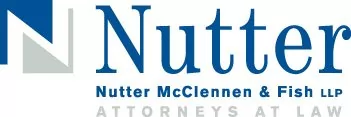On May 1, 2008 the Massachusetts Attorney General's Office issued an Advisory on the Commonwealth's Independent Contractor Law, M.G.L. c. 149, §148B (the "Independent Contractor Law"). The Advisory, coming as it does on the heels of a recent change in the Commonwealth's Wage Act that imposes mandatory treble damages for violations of the Wage Act, amplifies the importance of properly classifying workers.
The Attorney General's Advisory clarifies the Attorney General's position with respect to the Independent Contractor Law, which was most recently amended in 2004. Under the Independent Contractor Law, those providing services to employers are presumed to be employees rather than independent contractors. In order for an employer to legitimately classify a worker as an independent contractor, the employer must meet all three elements of the following three prong test:
1) the individual worker must be free from the control and direction of the employer;
2) the services performed by the individual worker must be outside the usual course of business of the employer; and
3) the individual worker must be customarily engaged in an independently established trade, occupation, profession, or business of the same nature as that involved in the services provided to the employer.
The Advisory provides guidance on the Attorney General's interpretation of the three prongs of this Independent Contractor test. To satisfy the first prong of the test, an employer must demonstrate that the worker performs his/her duties with minimal instruction, free from the control and direction of the employer. To satisfy the second prong of the test, an employer must demonstrate that the worker is performing duties that are only incidental to the employer's business, and not necessary and essential to the employer's business. This is a new "employer friendly" interpretation of this second prong of the test, as it distinguishes "incidental" services from the necessary and essential services that would be considered part of the usual course of the employer's business. The third prong of the test requires an employer to establish that the worker is capable of performing the services to any third party desiring to avail themself of such services, and not dependent on a single employer.
The Advisory highlights the Attorney General's intent to carry out its enforcement responsibilities, and the likelihood of increased scrutiny of employers' use of independent contractors. While the Attorney General's interpretation of the second prong of the three prong Independent Contractor test might offer employers greater flexibility in classifying workers as independent contractors, the risks associated with such classifications are more pronounced. We therefore advise employers to conduct careful reviews of their policies with respect to worker classifications, and their use of independent contractors. That review is especially important in light of the recent changes to the Massachusetts Wage Act. For example, many employers who utilize independent contractors pay them on an hourly basis. However, to be exempt employees under the Fair Labor Standards Act and the Massachusetts overtime laws, workers must be paid on a "salaried" basis. Thus, highly compensated workers who are improperly classified as independent contractors would subject an employer to the Attorney General's enforcement of the Independent Contractor Law, and potential claims for unpaid overtime under the Commonwealth's Wage Act. Because the Wage Act now provides for mandatory treble damages, without regard to an employer's good faith efforts to comply with the law, the liability for improper classification has substantially increased.
This update is for information purposes only and should not be construed as legal advice on any specific facts or circumstances. Under the rules of the Supreme Judicial Court of Massachusetts, this material may be considered as advertising.

